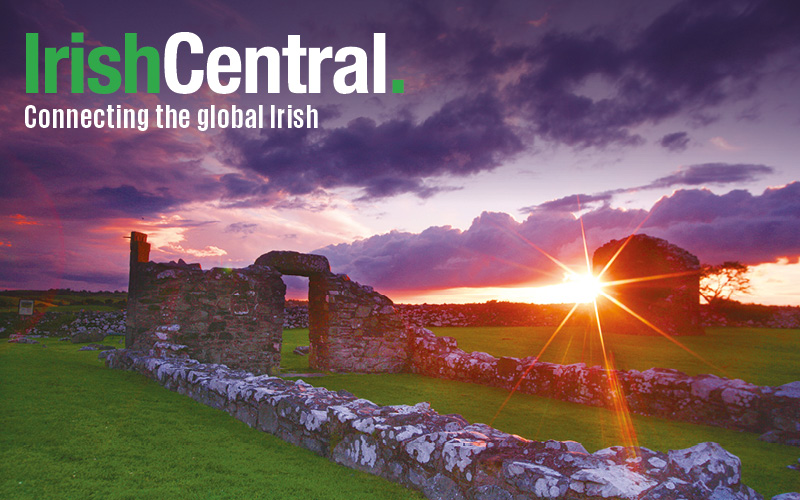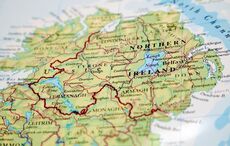Meet Ellen Murray, the 22-year-old Green Party candidate for West Belfast in the Northern Ireland Assembly elections, and the latest and most striking example of how the legacy of the peace process is transforming the political debate there.
Born in the heart of republican West Belfast, Murray was just two years old when the IRA ceasefire was announced. On May 5 she will make history as the first transgender candidate to stand in an election north or south of the Irish border.
It’s a distinction that’s not lost on the young woman who, because she lives in the only part of the UK to resist marriage equality for LGBT couples, must watch many of her legal rights appear or vanish as she crosses the border from Northern Ireland to the Republic (same-sex marriage is not legal in Northern Ireland, which also grants significantly fewer rights to its transgender citizens).
Nevertheless, it’s a measure of the North’s status as a society in transition itself that its calcified political debates are rapidly widening from the usual sectarian headcounts.
“The surprise is that I'm encountering widespread support,” Mullen tells IrishCentral. “It's a very risky thing to put my hat in the ring and I was expecting a lot of pushback and retaliation. But the support's been very encouraging. The conversations that I'm having most are with people from my own LGBT community and they're very enthusiastic.
“In terms of the wider population I think there's something about interesting candidates you don't expect to be running here that captures people's attention somewhat. I've had a lot of discussions where I talk to people and then they look me up on Twitter. It's not a novelty. It's interesting for people to see the diversity of candidates.”
Last night's hustings at @hearinglossNI went super well - thanks so much for everyone there! pic.twitter.com/0zIQqK9msJ
— Ellen Murray (@ellenfromnowon) April 22, 2016
Observers suggest that the cracks in the frozen sea of Northern Ireland’s politics that have appeared since the start of the peace process could soon become a flood.
They blame the internet. Social media is leading an information revolution that even Northern Ireland, one of the most politically hidebound states in Europe, cannot withstand.
Thanks to sites like Twitter, Tumblr and Facebook, young and traditionally disenfranchised voters are finding their own voices for the first time, and more and more of them are demanding to be heard, perhaps especially in working class communities, where diversity has been reflexively suppressed for decades.
It turns out that's a win for the state. Hyper-articulate and uncommonly focused on her manifesto, which comes from her lived experience, Murray makes for an impressive first time candidate.
“I got involved in politics as soon as I came out as trans in 2013 because I was finding that the health services I needed to get access to were completely inaccessible,” she explains. “They weren't taking any new patients and I was being told to wait forever for an appointment.”
Murray took up the issue with her local MLA's at Stormont, which led to two and a half years of healthcare advocacy work with local government departments to promote access to services for young trans people initially, then people of all ages.
“When I was working with Stormont there seemed to be many ways in which things could be changed for the better and I just got hooked on that sort of community work.”
To her surprise, Murray found support for her work from all parties, but getting public support is still very difficult she admits. “There are good individuals in all of the parties. The big unionist parties are quite publicly anti-LGBT, so when it comes party policy and getting candidates to commit to issues publicly that is tricky. There is very little cultural competency around trans and non-binary (gender identities that are not exclusively masculine or feminine) people within politics here.”
Murray adds that if elected she is very conscious of the mountain she will have to climb. “There's only a small handful of individuals in general – never mind parties – in Northern Ireland that have a real grasp of legislation affecting trans issues or even women's issues generally.”
Ellen Murray- 22 year old Irish trans woman who is the first person to run in a northern Irish election pic.twitter.com/aJJRNjKCdi
— Feminist Hour (@thefeministhour) March 8, 2016
But even people who disagree with her politics seem to be glad that she's running, she says. “Those conversations are starting to happen and space is being made for them to. It's a positive thing and it's been great.”
Meanwhile, Murray is appalled by the hysterical “bathroom predator” bills that are being pushed in some states in the U.S. and believes that North Carolina's HB2 bill is exactly the kind of fear-mongering legislation that she would stand against at home.
“I am fearful for a lot of my trans friends who live in the south and in the U.S. generally. I'm seeing a lot of them really struggling at the moment. I have a fairly extensive network of trans folk I have known online for years now and they're worried, they're stressed, they aren't able to access the same public services and integrate into society in the ways that they were. They're deeply concerned about the fear and the backlash that is happening against them.
“Bathroom bills are only discussed in fringe circles over here and there are a few candidates – the kind who want to outlaw feminism and rock music – who have it on their manifestoes. Hopefully they won't get too far."
Completely non-evidence based claims made against trans people are used to justify violence and the policing of people's genders in public, Murray says. That can lead to social isolation and to suicide. “The US trans hotline has seen a doubling of calls since HB2 (North Carolina's so-called bathroom bill) was passed. That's appalling.”
Although the marriage equality referendum in the Republic had a successful outcome last year, there was also a tenfold increase in people being referred to LGBT support she says.
“The vitriol in the media and the public backlash at times deeply affected people. With HB2 that's being replicated in the States at the moment and we're talking about one of the most vulnerable communities to self harm and suicide and other risk behaviors and this is not in any way safe for that community.”
Representation is Murray's watchword. As a candidate she wants to be a voice for anyone who feels overlooked or underserved by the traditional parities.
“I think that makeup of the Northern Assembly has to reflect the makeup of the population. We currently have zero out LGBT MLA's and we're very unlikely to get representative in the Assembly going forward. We need to have a conversation about making our politics more representative.
“Until we have a proper balance of demographics within our legislature we won't be making decisions that are well informed. You can do all the consultation work that you want, but until the people making the decisions have the lived experience they will not be making good decisions.”
If elected on May 5 Murray will be an extraordinary sign of things to come. After all, Northern Ireland's politics used to exasperate even the habitually unflappable Winston Churchill.
After World War I had shaken Europe to its foundations he was depressed to realize that as “the waters fall short we see the dreary steeples of Fermanagh and Tyrone emerging once again.”
“The integrity of their quarrel is one of the few institutions that have been unaltered in the cataclysm which has swept the world,” he wrote.
We’re all changed utterly, he wrote, but they haven’t changed a jot. What the hell is wrong with these people, he might have added.
Representation appears to have been the answer. “The makeup of Stormont simply needs to change,” Murray says. On May 5 she intends to deliver that message by standing in West Belfast.




Comments